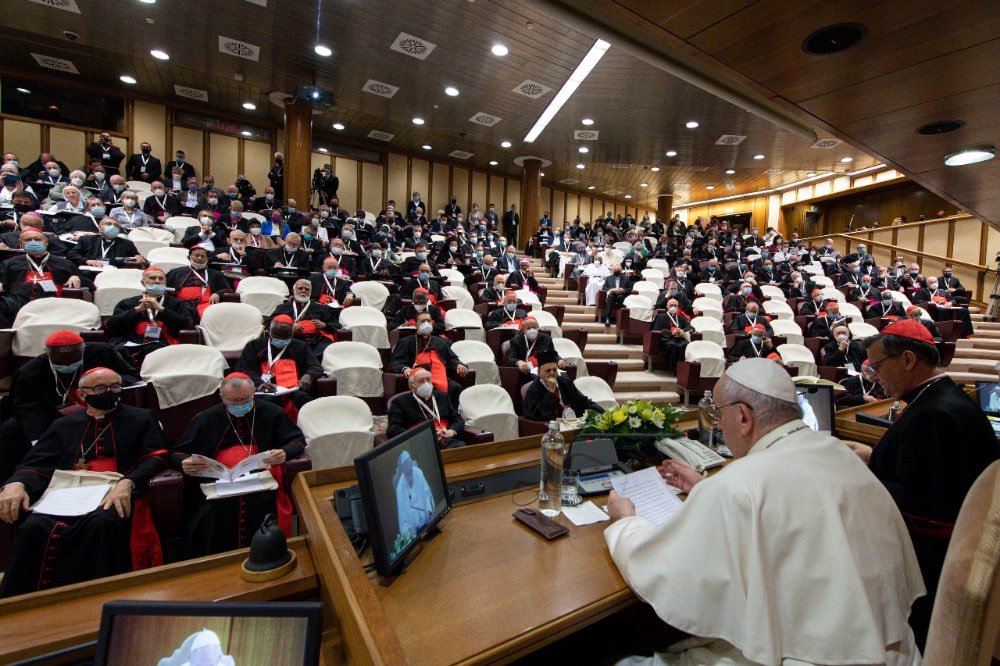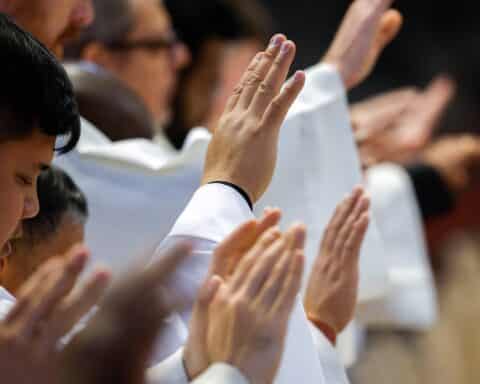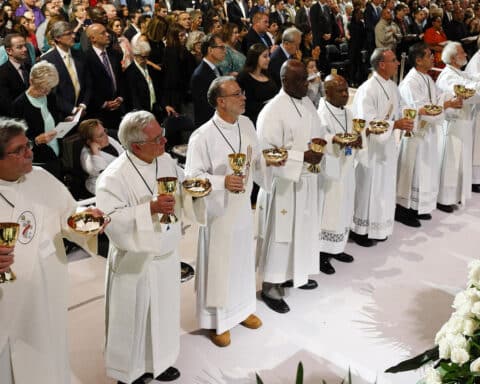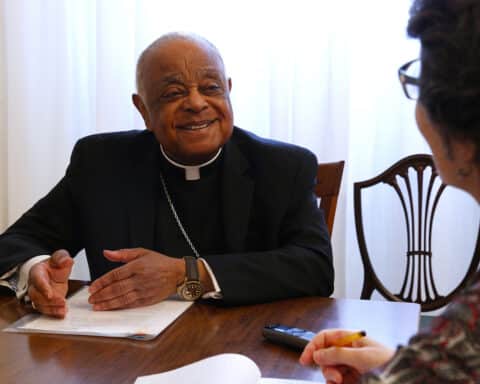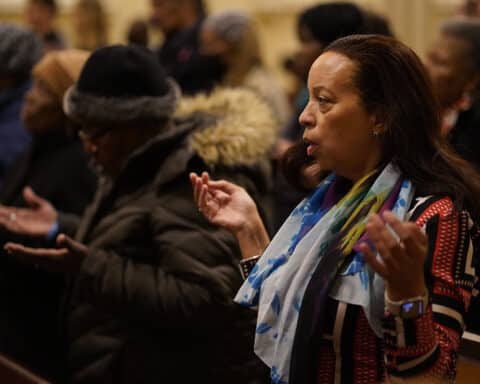The Synod of Bishops on the theme of synodality has raised many questions, one of the most important of which is simply: What can be meant by the idea of “a listening Church”?
Concerns come from different angles. While one group fears that the Church might be too inclined to listen to the ideas coming from contemporary culture that are incompatible with the Gospel, another group feels that they may well be invited to talk but that their contributions are likely to be ignored. Now, let us note that many in both of these groups are inclined to imagine themselves as powerless, maybe even persecuted, and to view the other group as a threat. The Church, each side hopes, had better not listen to those people.
It seems to me that a fundamental problem here is our proclivity for viewing life in the Church as basically analogous to political life. In politics, we try to secure power and then to use that power to impose our view through the implementation of policy. That this might be done through peaceful means does not change the basic dynamic. When we citizens of Western democracies are presented with a synod like this one, the most intuitive categories available to most of us for understanding notions like “a listening Church” are drawn from this political experience.
This means, for instance, that many of us unwittingly interpret “a listening Church” to mean a Church that listens to me, that is responsible to me and my views in a way analogous to the way a political representative is responsible to me as a constituent. The problem that immediately presents itself, however, is that my neighbor, who disagrees with me on a whole range of matters of importance in the Church, thinks the same thing! And so, it becomes very easy to imagine that my role in the synod is to make my voice heard over that of my neighbor.
Notice that, in this construction, “the Church” means essentially the hierarchy. And the question becomes, “Which group of the faithful will have the most influence over the decisions of those in power?” The synod can take on the feel of an election. And elections have winners and losers. Recall, for example, how much of Catholic discourse about the Amazon synod centered on a small handful of controversial topics (that we used to say would “sell papers” but now that elicit clicks online) and how the final document was read, in too many quarters, almost exclusively with an eye to what it said about those topics. Many Catholics in North America and Europe seemed to care very little for the experience of life and faith of our brothers and sisters in Christ in the Amazon, but a whole lot about whether married men might be ordained to the priesthood or women admitted to the diaconate.
Pope Francis has said that a synod is not democracy but discernment. This is often met with incomprehension. We imagine that the questions and their potential answers are already set, like party platforms, and that the task before us is to choose between them. And there is no shortage of lobbyists on both sides of any controversial question to reinforce such a notion. Such choosing would ensure, however, that those whose preferred platforms are rejected feel marginalized by the whole process, and the divisions in the Church would only deepen. It would also mean that we have subjected the truth of the Gospel to something like a popular vote. And that is bad news even for the winners. Because what can be voted true today can be voted false tomorrow.
So, what does Pope Francis mean by calling this process a discernment?
Can I suggest that the primary referent for “Church” in the phrase “a listening Church” is not the hierarchy, not those with access to the levers of power, but all of the baptized? And that the real question is not which group of the baptized (or even the unbaptized!) will have the most influence on the hierarchy, but whether or not the baptized can learn to listen to one another.
Francis does indeed want to transform the Church. But not in the way that one group fears and another cheers — that is to say, by changing Church teaching. Those who have pinned their hopes for such changes on Francis have been consistently disappointed, even as those who fear such changes continue to fret, spurred on by social media grifters who butter their bread by keeping their audiences in a state of perpetual anxiety.
Rather, Francis wants to change the Church by equipping all the baptized to engage in the mission of the Church. And there are few skills more essential to this mission than listening. The reason for this is simple: No one is willing to listen to anyone if they do not first feel heard and understood. We know this is true if we are at all attentive to the relationships in our own lives. If the Church wants to be able to speak and be heard, it must listen.
Notice that this is not saying that the Church must agree with and affirm everything it hears. Disagreement is not only possible, but it is healthy and to be expected. It can even be productive. But it will only be productive if those being disagreed with are confident that they have first been heard and understood. Nothing shuts down communication like the sense that the other party is not even interested in what you have to say.
In the Gospel of John, Chapter 17, Jesus explicitly links the unity of the Church with its mission. He prays that his followers might be one, that the world may believe. This means, it seems to me, that listening to one another in the Church needs to be our first priority. Only genuinely listening to one another will begin to heal the divisions plaguing the Church today.
Listening is always hard work (including the hardest part — prayer!) because listening is the practice of getting your own ego to shut up long enough to hear what is in the heart of another person. Sound-bite politics and social media silos have made this kind of work much harder. We are so threatened by one another that our egos are in a constant state of self-protection. We are less and less able, in other words, to live the freedom offered to us in Christ Jesus. This is not attractive.
In such a context, I suspect that one of the most important things that the Church can offer to the world is a community where people actually know how to hear one another. And when we really hear one another, we also hear the Holy Spirit — the spirit both of unity and of truth — creatively reframing problems that seemed intractable within our own limited categories. If we can do this, we will find the Church has changed, not because our side won or lost the battle on some hot-button topic, but because we find ourselves changed.
Brett Salkeld writes from Saskatchewan, Canada.

